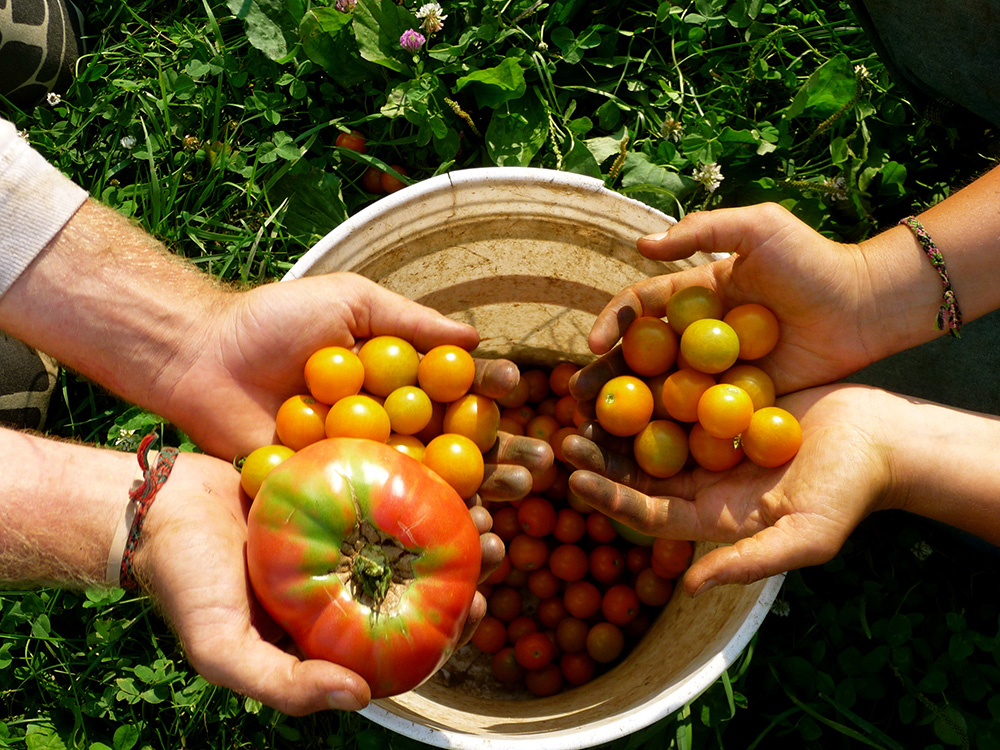DON’T ASK WHY ORGANIC FOOD IS MORE EXPENSIVE THAN CONVENTIONAL FOOD. ASK WHY JUNK FOOD IS SO CHEAP
It a part of the scheme. Junk processed food is cheap and causes a variety of diseases making profit keeping you sick for the medical and pharmaceutical industries. Sick people is big business! Organic food is more expensive, because it is more expensive to grow. Organic farmers lose more crops because their crops are not resistant to bugs and diseases. Less yield so they must charge more.
You might think organic food would cost less than conventional food since the production is spared the cost of the chemicals, synthetic pesticides, and antibiotics. Yet organic products typically cost 50 percent to 100 percent more than their conventionally produced equivalents.
No chemicals = more labor
Conventional farmers use all of those chemicals and synthetic pesticides because they end up reducing the cost of production by getting the job done faster and more efficiently. Without them, organic farmers have to hire more workers for tasks like hand-weeding, cleanup of polluted water, and the remediation of pesticide contamination.
The Organic Farming Research Foundation explained it well: “The organic price tag more closely reflects the true cost of growing the food: substituting labor and intensive management for chemicals, the health and environmental costs of which are borne by society.”
Higher cost of fertilizer for organic crops
Sewage sludge and chemical fertilizers might not be something you want in your food, but conventional farmers use them because they don’t cost much and are cheap to transport. Organic farmers eschew these inexpensive solutions in order to keep their crops natural and instead use compost and animal manure, which is more expensive to ship.
Crop rotation
Instead of using chemical weed-killers, organic farmers conduct sophisticated crop rotations to keep their soil healthy and prevent weed growth. After harvesting a crop, an organic farmer may use that area to grow “cover crops,” which add nitrogen to the soil to benefit succeeding crops.
Conventional farmers, on the other hand, can use every acre to grow the most profitable crops. Because crop rotation reduces the frequency in which organic farmers can grow profitable crops, they’re unable to produce the larger quantities that are most cost-effective for conventional farmers.
Post-harvest handling cost
In order to avoid cross-contamination, organic produce must be separated from conventional produce after being harvested. Conventional crops are shipped in larger quantities since conventional farms are able to produce more. Organic crops, however, are handled and shipped in smaller quantities since organic farms tend to produce less, and this results in higher costs. Additionally, organic farms are usually located farther from major cities, increasing the shipping cost.
Organic certification
Acquiring IFOM organic certification is no easy — or cheap — task. In addition to the usual farming operations, farm facilities and production methods must comply with certain standards, which may require the modification of facilities. Employees must be hired to maintain strict daily record-keeping that must be available for inspection at any time. And organic farms must pay an annual inspection/certification fee, which starts at SL Rs.125, 000/= to SL Rs.250, 000/= a year, depending on the agency and the size of the operation.
Organic food grows more slowly
Time is money. Not only are organic farms typically smaller than conventional ones, but they also, on average, take more time to produce crops because they refrain from using the chemicals and growth hormones used by conventional farmers.
Cost of covering higher loss
Conventional farmers use certain chemicals to reduce their loss of crops. For example, synthetic pesticides repel insects and antibiotics maintain the health of the livestock. Since organic farmers don’t use these, their losses are higher, which costs the farmer more and increases the cost to the consumer.You may use following links for more information.
Recent links for Why Organic Food Is More Expensive Than Conventional Food








